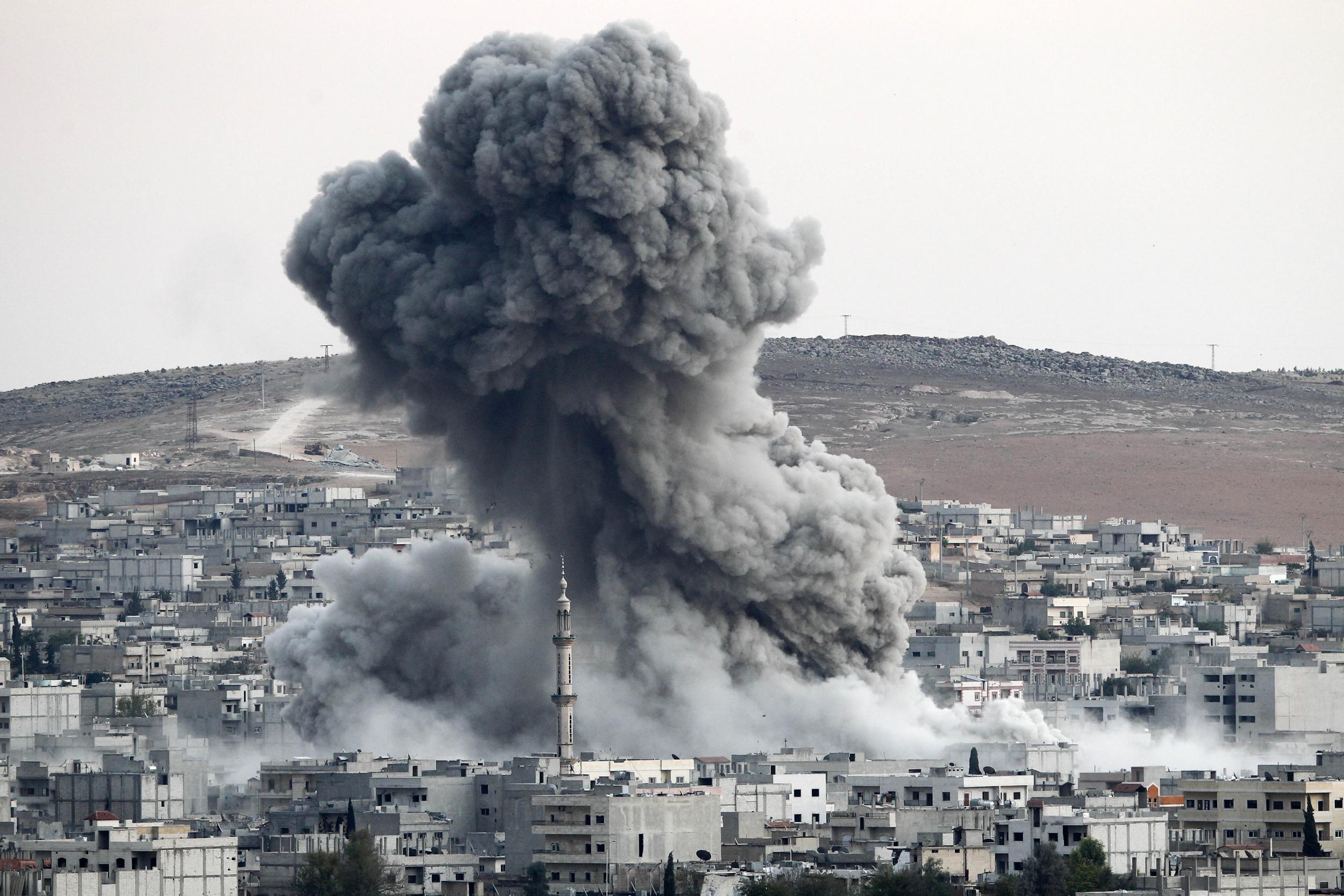British warplanes hit Isis targets in Syria just four times in five weeks
Government statistics show a steep decline in air strikes since the start of the year

Your support helps us to tell the story
From reproductive rights to climate change to Big Tech, The Independent is on the ground when the story is developing. Whether it's investigating the financials of Elon Musk's pro-Trump PAC or producing our latest documentary, 'The A Word', which shines a light on the American women fighting for reproductive rights, we know how important it is to parse out the facts from the messaging.
At such a critical moment in US history, we need reporters on the ground. Your donation allows us to keep sending journalists to speak to both sides of the story.
The Independent is trusted by Americans across the entire political spectrum. And unlike many other quality news outlets, we choose not to lock Americans out of our reporting and analysis with paywalls. We believe quality journalism should be available to everyone, paid for by those who can afford it.
Your support makes all the difference.British warplanes engaged in the fight against Isis have only carried out three or four airstrikes against the group in Syria since the beginning of March, figures released by the Ministry of Defence show, undermining claims by David Cameron that UK forces would play a “vital, battle-winning” role in the conflict.
The latest statistics show a marked decline in the number of attacks against Isis positions and strongholds in the country since Parliament gave the go-ahead for British airstrikes in December.
In January the UK participated in 14 strikes against Isis in Syria, but this fell to seven in February and just four in March. No strikes took place in the first week of April – the latest period for which figures are available.
Significantly, there has not been a single strike using the British Brimstone missile system – which David Cameron cited as a key strategic reason for the UK to extend its campaign into Syria – since February 18.
There has also only been one incident since the start of March of the UK providing close air support to Syrian or Kurdish fighters taking on Isis.
In December, David Cameron said this was one of the primary reasons for British involvement in the conflict.
“We believe there are around 70,000 Syrian opposition fighters who do not belong to extremist groups,” he told the House of Commons.
“They are ground troops. They need our help. When they get it, they succeed. So in my view we should do more to help them from the air.”
But the only strikes since March have been:
- An airstrike on a terrorist truck concealed in an orchard that was struck by a Reaper unmanned drone.
- An attack on an Isis weapons storage facility at a site south-east of Raqqa. Eight Paveway bombs destroyed the main warehouse and three support buildings.
- And a Reaper drone using a Hellfire missile to demolish a Daesh storage building near Ukayrishah.
The only evidence of RAF planes supporting rebel fighters appears to have been on 2 March when an RAF Reaper provided air support to Syrian Democratic Forces south-west of As Shadadi. But it was unclear whether an actual airstrike was carried out and the drone appears to have been providing intelligence support.
A senior Labour source suggested that the drop-off in attacks supported their position in the House of Commons vote on extending airstrikes. Labour argued that such a move was largely symbolic rather than being driven by an operation need as claimed by Mr Cameron.
“Yet again this is evidence of Cameron being tactical rather than strategic and doing something without thinking through whether it was actually necessary,” they said.
“Yet again it is the poor RAF who have been left to fill in the gaps.”
The source, who did not want to be named because of the splits within Labour on the vote, suggested the figures showed that Jeremy Corybn had been right to oppose extending military action.
“In part it shows the success of our policy,” they added. “Clearly they don’t want to attack civilians or engage in anything which could later come back and damage them. The trouble is there are no easy targets in Syria."
The SNP’s Defence spokesperson, Brendan O’Hara MP, questioned why the figures were being slipped out on the internet without ministers making a full statement and explanation to Parliament.
“If the UK government are tailing off air-strikes in Syria – why haven’t they told us?” he asked.
“The SNP has repeatedly called on the UK government to update Parliament on the coalition air-strikes. We were promised updates on the UK’s bombing campaign by the Prime Minister last December and we’re still waiting.
“The House of Commons voted to give the green light for military action with key questions unanswered and without any comprehensive plan for peace and reconstruction.
“There is a shared commitment to destroying Daesh but we remain unconvinced that airstrikes will achieve this goal.”
But an MoD spokesman insisted that the UK was one part of a broader coalition against Isis that spanned operations in both Syria and Iraq. RAF Tornado, Typhoon and Reaper have conducted over 700 strikes in Iraq and Syria. “Only the US has carried out more strikes against Daesh in Syria since we began military operations there,” he said.
“But we make no apology that our focus has been helping recapture key Iraqi cities such as Ramadi and Hit. Iraq and Syria are one battlefield in this fight and our planes will operate wherever they can be best used.”
Join our commenting forum
Join thought-provoking conversations, follow other Independent readers and see their replies
Comments